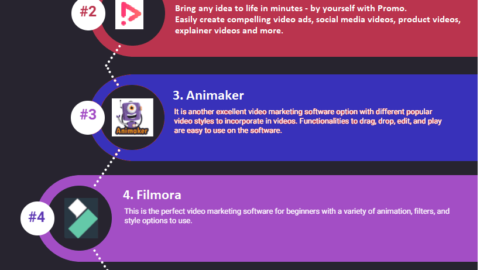9 Tips for SEO Success With Your Blog
You can just be sure that no matter how niche your industry is, someone will always be looking for useful knowledge, and you want your company to be the one to deliver it to them. When it comes to blogging for SEO success, it’s easy for businesses to face a brick wall. Writers can get stuck in ruts and struggle to come up with new, intriguing content at times during SEO writing. However, as frequent updating is essential for any successful blog, you’ll need to find a means to get yourself through it if your imagination runs dry. If you actually want your company’s blog to flourish, it will take a lot of creativity and willpower.
Table of Contents
If you’re looking for tips on how to enhance blogging for SEO success, you’ve come to the right place. Search engine optimization, or SEO, is a process that can help your blog rank higher in search engine results pages (SERPs), which can result in more website visitors… and it has the power to truly transform your blog traffic. But, achieveing SEO success can be a little overwhelming, especially if you’re just starting out. So, in this guide, you’ll find the key tips you need to begin.
1. Research Your Keywords
First and foremost, it’s important to do your research. There are plenty of tools you can use to help with your SEO writing, including some free tools like Google Keyword Planner, Moz Keyword Explorer, and AdWords. What’s more, you can also use Google Trends to help you determine which keywords are trending. Once you’ve determined your target keywords, it’s important to include them throughout your blog posts. You can do this by using them in the title, in the body of your post, and in the anchor text (the text you use to hyperlink to other related pages on your site).
2. Write For Your Audience… Not Just For Search Engines
One of the biggest mistakes bloggers make is trying to optimize their blog posts for search engines, as opposed to their audience. When you’re writing your blog posts for SEO success, you should always keep your target reader in mind; that’s who you should be optimizing for. Remember, search engines are designed to read and index text. They’re not great at understanding images, videos, or infographics. So, when you’re writing your blog posts, make sure you include plenty of text (including your target keywords).
3. Link Internally Whenever Possible
One of the best things you can do for your SEO success is to link internally whenever possible. Not only does this help improve the user experience on your website, but it also helps the search engines understand your website better. Plus, when you link to other pages on your website, it’s a signal to the search engines that those pages are important, which can help them rank higher.
4. Use Long-Tail Keywords for Better SEO Success
While your initial keyword research might show that shorter keywords tend to be more popular than longer ones, this isn’t always the case. Remember, it’s better to be specific than general when you’re doing your SEO, so use long-tail keywords whenever possible.
5. Build Trust With Your Users
When a user lands on your blog post through a search engine result, they might have never heard of you before. But, as they read your blog post, they’ll begin to develop a level of trust with you. The more trustworthy you are, the more likely users will be to click on and share your content.
6. Create A Content Plan for SEO Success
You should always keep your readers in mind when you’re creating new blog posts; however, that doesn’t mean you can just write blog posts willy-nilly. You should always have a content plan in place, which includes how many blog posts you’ll publish per month or even per week. Ensuring SEO success relies upon consistency, don’t forget!
7. Always Add Value To Your Blog Posts
No one wants to click on your blog post only to find out it’s not what they thought it would be. When doing SEO writing, always make sure you’re adding value to them. This means you should never just recycle content from other sources or publish something just for the sake of publishing it.
8. Build Links to Your Blog Posts
External links are a valuable signal to the search engines that your blog post is important. When you link out to other websites, not only are you providing more value to your readers, but you’re also helping improve the SEO of your blog post. You also need to obtain links from other sites, and using white hat link building services is a good way to do it.
9. Use Social Media To Promote Your Posts
Social media can be a great way to promote your blog posts. When you share your posts on sites like Facebook, Twitter, Google+, etc. you can help boost their SEO by exposing them to a new audience.
10. Monitor Your Results to Ensure Future SEO Success
SEO is a never-ending process, so you need to constantly monitor your results and make changes as necessary. This means tracking your website’s search engine rankings, analyzing your website’s traffic data, and measuring the engagement of your blog posts.
Conclusion
The days when a few SEO tactics were sufficient to propel your website to the top of Google’s search results are long gone. Nowadays, high-quality content reigns supreme. In addition, high-quality content encourages more links, shares, tweets, and repeat visitors to your website, which increases your overall traffic. Obviously, there are other things you can do to improve the SEO friendliness of your article, but the most essential thing is to publish content that are exceptionally well-written.

Business Developmeny Manager at PAS InfoCom Technologies Ltd. Experienced in project management with a demonstrated history of working in the information technology and services industry.










